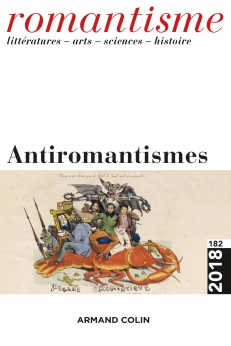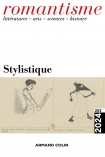
ROMANTISME N° 182 (4/2018)
Pour acheter ce numéro, contactez-nous
Recevez les numéros de l'année en cours et accédez à l'intégralité des articles en ligne.
Dans la première moitié du XIXe siècle, l’anatomie et la physiologie cérébrales formulent des idées audacieuses qu’on réunira sous l’expression « cérébration inconsciente » dans la seconde moitié du siècle. Le rôle moteur du cerveau est contesté, son fonctionnement rattaché à des processus inconscients qui opèrent de façon réflexe. Cet article rappelle les conditions d’émergence de la « cérébration inconsciente » dans le débat, puis confronte aux discours scientifiques la fiction littéraire afin de découvrir l’apport original de cette dernière à trois niveaux – phénoménologie de la cérébration inconsciente, rôle étiologique dans la névrose et conséquences sur l’image de l’artiste. L’apport littéraire s’avère moins addition de connaissance que jeu avec les pratiques d’écriture et les notions des sciences contemporaines, un jeu par lequel elle propose pourtant un savoir concurrent ou alternatif, ouvrant de nouvelles perspectives épistémologiques.
During the first half of the nineteenth century, brain anatomy and physiology began to express innovative ideas that would come to be known collectively as “unconscious cerebration” by the end of the century. The notion of the brain as the body’s motor was called into question as its functioning was linked to unconscious and reflexive processes. This article will explicate the conditions under which the notion of “unconscious cerebration” was introduced into public debates. It will then turn towards the intersection between literary narratives and scientific discourse in order to understand the contribution of literature on three levels: the phenomenology of unconscious cerebration, the etiology of neuroses, and the representation of the artist. The contribution of literature proves to be less an addition to the base of knowledge than a subtle play with writing practices and notions of the contemporary sciences. Through this play, fiction provides a competing and alternative form of knowledge, opening up new epistemological horizons.

